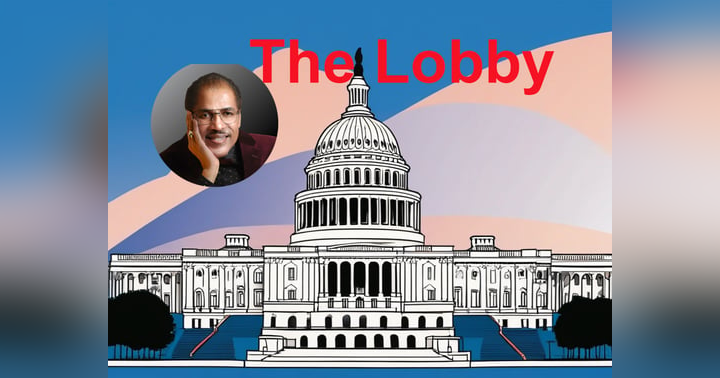Analysis on the legal aspects of Israel's occupation of Palestinian land.

Since the establishment of the state of Israel in 1948, the Israeli-Palestinian conflict has been a central and contentious issue in international politics. At the heart of this conflict is the Israeli occupation of Palestinian land, which has been ongoing for decades and has sparked intense debate about its legality under international law. In this analysis, we will explore the legal aspects of Israel's occupation of Palestinian land, examining the relevant international laws and treaties, assessing the perspectives of both Israeli and Palestinian authorities, providing historical context, discussing current developments, and presenting expert opinions on the complex legal issues at stake.
Historical Context:
The roots of the Israeli occupation of Palestinian land can be traced back to the Arab-Israeli war of 1948, also known as the Nakba (catastrophe) by Palestinians, which resulted in the establishment of the State of Israel and the displacement of hundreds of thousands of Palestinians. In the aftermath of the war, Israel gained control over a significant portion of historical Palestine, including East Jerusalem, the West Bank, and the Gaza Strip.
Following the Six-Day War in 1967, Israel occupied the remaining Palestinian territories, including East Jerusalem, the West Bank, and the Gaza Strip, along with the Syrian Golan Heights and the Egyptian Sinai Peninsula. The occupation of these territories has been a major source of tension and conflict between Israel and the Palestinians, as well as the broader international community.
International Laws and Treaties:
The legal framework governing the Israeli occupation of Palestinian land is primarily based on international humanitarian law, as outlined in the Fourth Geneva Convention of 1949. The Fourth Geneva Convention is a cornerstone of international humanitarian law and provides protections for civilians in times of war and conflict. It prohibits the occupying power from transferring its own civilian population into occupied territory, confiscating private property, and imposing collective punishments on the civilian population.
The United Nations Security Council has passed numerous resolutions condemning the Israeli occupation of Palestinian land and calling for the withdrawal of Israeli forces from the occupied territories. Resolution 242, adopted in 1967, calls for the "withdrawal of Israeli armed forces from territories occupied in the recent conflict" and the "termination of all claims or states of belligerency."
Furthermore, the International Court of Justice (ICJ) issued an advisory opinion in 2004 stating that the construction of Israel's separation barrier in the West Bank violates international law and calling for its dismantlement. The ICJ also affirmed the applicability of the Fourth Geneva Convention to the occupied Palestinian territories.
Israeli Perspective:
From the Israeli perspective, the occupation of Palestinian land is seen as a necessary security measure to protect Israeli citizens from terrorist attacks and to maintain territorial integrity. Israeli authorities argue that the occupation is justified under international law as a response to aggression from neighboring Arab states and Palestinian militant groups.
Israeli settlements in the occupied territories, which are considered illegal under international law, have continued to expand over the years, leading to further tensions with the Palestinian population. The Israeli government has pursued a policy of de facto annexation in the West Bank, gradually incorporating these territories into Israel through the construction of settlements, roads, and infrastructure projects.
Palestinian Perspective:
On the other hand, Palestinians view the Israeli occupation as a violation of their rights to self-determination, sovereignty, and territorial integrity. The Palestinian Authority, led by President Mahmoud Abbas, has consistently called for an end to the occupation and the establishment of an independent Palestinian state with East Jerusalem as its capital.
Palestinian officials argue that the Israeli occupation is a form of colonialism, apartheid, and ethnic cleansing that has deprived the Palestinian people of their basic human rights and fundamental freedoms. The continued expansion of Israeli settlements in the occupied territories, along with the construction of the separation barrier and the confiscation of Palestinian land, has further exacerbated tensions and deepened the divide between Israelis and Palestinians.
Current Developments:
In recent years, the Israeli occupation of Palestinian land has faced renewed scrutiny from the international community, with calls for accountability, justice, and respect for international law. The United Nations, the European Union, and various human rights organizations have all condemned Israeli policies and practices in the occupied territories, including the demolition of Palestinian homes, the displacement of Palestinian families, and the use of excessive force against Palestinian civilians.
The Trump administration's decision to recognize Jerusalem as the capital of Israel and to move the U.S. embassy from Tel Aviv to Jerusalem in 2017 was widely criticized by the international community as a violation of international law and a unilateral move that prejudiced the outcome of peace negotiations between Israelis and Palestinians.
The recent normalization agreements between Israel and several Arab states, known as the Abraham Accords, have further complicated the situation by bypassing the Palestinian leadership and failing to address the root causes of the conflict, such as the occupation, settlements, and the status of Jerusalem.
Expert Opinions:
Legal experts, scholars, and human rights activists have weighed in on the legal aspects of the Israeli occupation of Palestinian land, offering divergent perspectives on the complexities of the issue. Some argue that the occupation is a flagrant violation of international law and human rights, while others contend that Israel has legitimate security concerns that justify its presence in the occupied territories.
Human rights organizations such as Human Rights Watch and Amnesty International have documented numerous abuses committed by Israeli forces in the occupied territories, including the use of excessive force, arbitrary detention, torture, and the killing of unarmed civilians. These organizations have called for accountability, justice, and respect for international law in addressing the Israeli occupation and its impact on Palestinian lives.
In conclusion, the Israeli occupation of Palestinian land is a deeply entrenched and highly contentious issue with far-reaching legal, political, and humanitarian implications. The conflict is rooted in historical grievances, territorial disputes, and conflicting narratives that have fueled decades of violence, instability, and suffering for both Israelis and Palestinians.
While the legal aspects of the occupation are complex and contested, it is clear that international law, including the Fourth Geneva Convention, prohibits the acquisition of territory by force, the transfer of civilian populations into occupied territories, and the imposition of discriminatory policies on the civilian population. The ongoing occupation of Palestinian land by Israel remains a major obstacle to peace, stability, and justice in the region and underscores the urgent need for a just and lasting resolution to the Israeli-Palestinian conflict that respects the rights and aspirations of both peoples.



